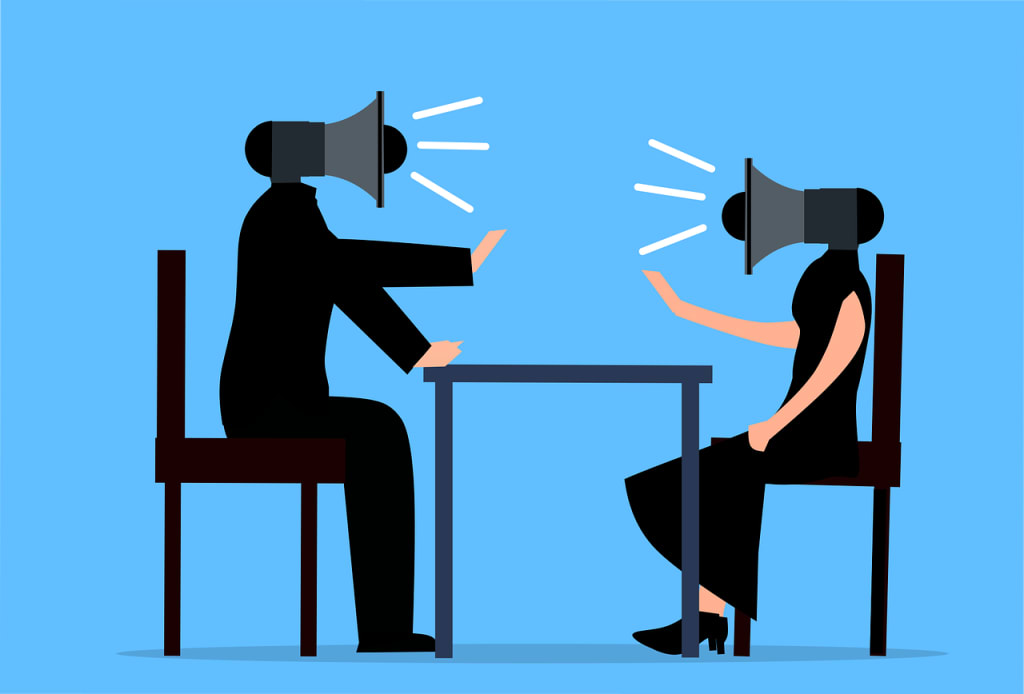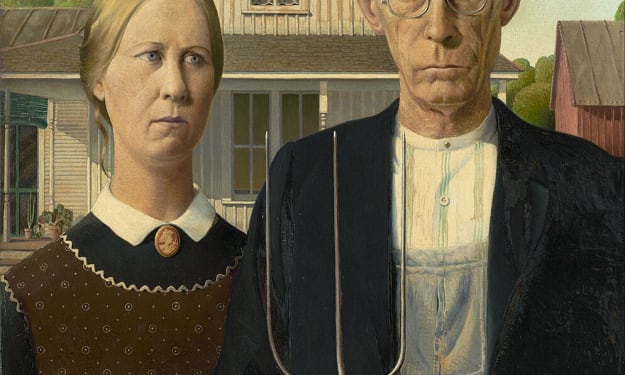Should You Apologize if You Were Wronged First?
It can be difficult to determine the limits of a proportional response to someone wronging us

A few years back, I read the book Hiroshima by John Hersey. It recounted with devastating detail the effect of the nuclear bomb dropped on the Japanese city of Hiroshima at the end of the Second World War. The annihilation of Hiroshima is a tragedy of unbelievable proportions. 78,000 people were killed instantly; many tens of thousands died later from the after effects. Moreover, this was a city — a civilian target — and the bomb decimated men, women, and children indiscriminately. Many of the people involved in creating and deploying the atomic bomb have voiced their compunctions about doing so. Yet, in the many decades that have passed, every American president has refused to apologize for the act. The U.S. has officially apologized for a number of things over the years, including the overthrow of the kingdom of Hawaii, slavery and Jim Crow, the Tuskegee experiment, and the internment of Japanese-Americans during World War II. Why not, then, apologize for dropping the atomic bomb?
The refusal to apologize for Hiroshima is one of the most dramatic examples of a social dynamic that can be witnessed at every scale throughout the social environment. To a much, much smaller degree, it’s something that occurs in just about every relationship between any two people. The reason the U.S. will never apologize to Japan for this act is that Japan declared war on the U.S. first, by launching surprise attacks on Pearl Harbor and many other U.S. territories/bases, and when something is done in retaliation, it’s seen as okay. In this article, I hope to explore that dynamic in full, by asking and answering the following question: If someone wrongs us first, how much latitude do we have in our reaction before our response becomes unfair?
If someone were to open hand slap a stranger on the street, in a way that doesn’t have the potential to cause much lasting injury, and that stranger in return beat them until they were riddled with cuts and bruises, you’d be hard-pressed to find fault with the individual for defending themselves. Obviously, there’s a premium to pay for being the one who started it.
However, there are a lot of factors that go into determining what’s an appropriate response, and what can be deemed an overreaction, even when accounting for the aggravating factor that the other party was the initiator. For example, what if in the earlier example the person delivering the slap is a woman, and the one returning the vicious beating is a man? The potential to cause harm, or be resistant to harm, is going to be weighed accordingly. We can quickly incorporate this factor into our reasoning by stating simply that: Harm is going to be assessed in relative terms. Playfully taunting someone about a physical feature that they probably don’t feel too strongly about — for example, big ears — wouldn’t justify a retaliatory insult about a physical feature that other person might feel deeply insecure about, such as being unhealthily over- or underweight.
Another factor is that while escalation can be expected in response to wrongdoing, it is often expected to be escalation in kind. It can be seen as extreme if words are responded to with actions, or if non-violent actions are responded to with violence. It is only natural that a reaction which is larger by degree is seen as more proportionate than one that is qualitatively different.
If we readily used formulas in the social sciences, we might find the following:
retaliation = initial transgression + a premium for not being the initiator
In other words, we’re entitled to do more back than was done to us, just because we weren’t the ones to start it. However, that “premium” doesn’t allow for a qualitatively different defensive action, nor does it allow for excessive escalation.
Most reasonable people respect the formula above implicitly. If somebody steals a $10 bill from you, and you steal back a $20 bill, most people would consider that justified. The premium in this case was an extra $10. However, where the initial transgression is not so clear cut, as is the case with something done accidentally or with something that is viewed as insulting (since this is given subjective interpretation), the shared understanding has the potential to breakdown. That’s why things become even more complicated in our personal relationships. We might get into an argument with our significant other, and perhaps they were in the wrong to begin with, but then we blew our top. Now, they expect us to apologize, while we think it’s more incumbent on them to apologize. Maybe the initiator won’t even acknowledge that they did anything wrong in these circumstances, or maybe they don’t think an accident is deserving of any sort of negative reaction. Conversely, they might acknowledge they did wrong, but still maintain that the reaction was excessive. How should this be resolved?
Frankly, if there is a debate over whether or not the initial action was indeed a wrong one, there is no concrete way to proceed. Both parties must search within themselves as to whether or not the initial act was proper. However, accidents should be dealt with in a specific way because of their nature. There was no real intent to cause harm, but there was real harm. Thus, accidents that negatively affect others should be apologized for. An apology is an expression of regret for what has occurred, and an implicit avowal that one won’t repeat the same action. This is perfectly appropriate for even accidental harm. It is equally appropriate for the party that is wronged to show grace for what was done accidentally, as there was no intention to commit the harmful act. Debates around negligence, however, can muddy the waters here.
When it comes to the stalemate of who owes whom an apology, the initiator or the party that overreacted, this much is clear: The initiator must apologize and should apologize first. There’s a term used in business and finance referred to as “FIFO,” which is short for “first in, first out,” and we can co-opt it for our purpose here as well. If you were the first to do harm, does it not make sense that you should be the first to apologize? How can you seek an apology first when you were the one who began the sequence of action and reaction that lead to that eventual outcome? It is fair that the pride of the defending party would keep them from apologizing first. The same cannot be said for the party who first broke the peace.
And to the titular question, “should you apologize if you were wronged first,” we can say that excessive overreactions, especially those that are different in kind from the initial wrongdoing, should be apologized for, but only if the initiator apologizes first. Moreover, it should only be seen as necessary to apologize in this context, if the reaction not only exceeds the original act, but exceeds the original act plus a significant premium. Some escalation is justifiable to compensate for the premium that accompanies the original transgression. The reasoning for this simple: The initial act was done against a party that is, in this context, innocent, whereas the retaliatory action is done as recompense. The severity of the latter act is leavened because it is automatically viewed as, at least partially, deserved.
Conclusion
The capacity for forgiveness is the most critical quality for any relationship, if it is to endure. Humanity is Icarian in nature: Our intellect and imagination have offered a glimpse of the highest ideals, but our limitations have guaranteed that we’ll never reach them. We can all readily conceive of what perfect behavior looks like, but none of us can act perfectly. This dichotomy of being the only sentient things in existence that we know of, while also being so thoroughly riddled by flaws, is the defining characteristic of our species. Forgiveness exists to reconcile these two halves. It’s what allows us to perform poorly today and to aim for something better again tomorrow. It’s also what allows us to co-exist. To truly love someone is little more than to be willing to forgive them over and over without end.
We should all aim to forgive, and we should all be granted forgiveness. But to make this a reality, we must also allow for the fact that it is inherently difficult to forgive, so we should respect the dynamics at play whenever we seek to be forgiven.
Enjoy this article? If you have Amazon Prime, you might, for a short time, have access to the digital versions of my books for free. Click here to find out.
About the Creator
Martin Vidal
Author of A Guide for Ambitious People, Flower Garden, and On Authorship
martinvidal.co
martinvidal.medium.com
Instagram: @martinvidalofficial
Enjoyed the story? Support the Creator.
Subscribe for free to receive all their stories in your feed. You could also pledge your support or give them a one-off tip, letting them know you appreciate their work.






Comments
There are no comments for this story
Be the first to respond and start the conversation.